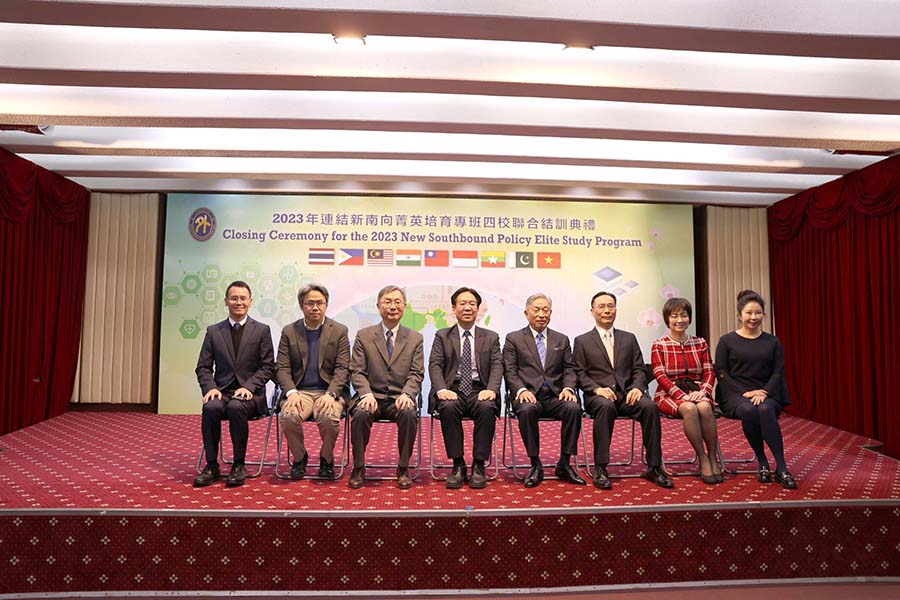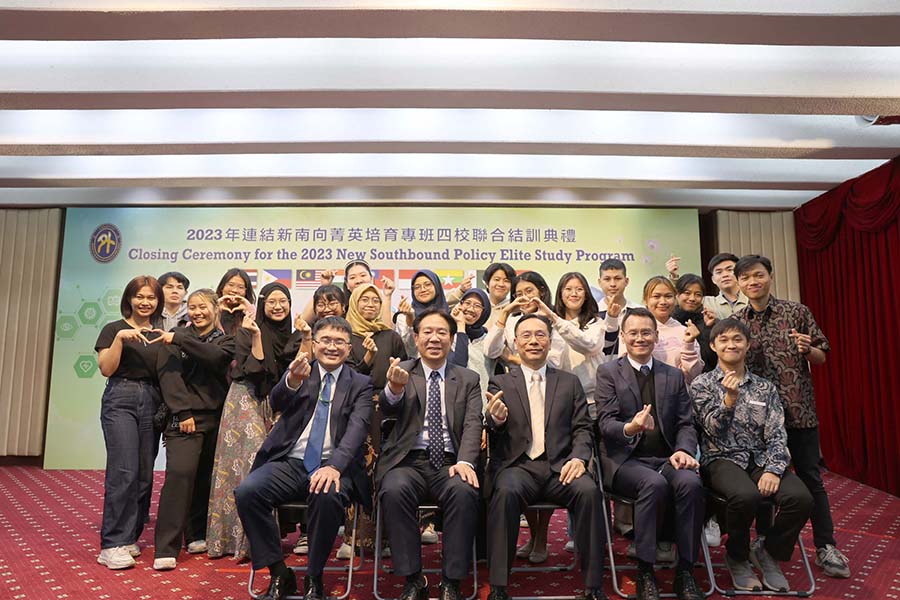National Pingtung University of Science and Technology (NPUST) is renowned for its R&D and talent cultivation in the area of agriculture technology. Recognizing its strengths, the Ministry of Foreign Affairs recruited the school and subsidized it to serve as one of the host universities for the “2023 New Southbound Policy Elite Study Program”. When the program came to a successful conclusion on January 12 of this year (2024), NPUST President Chin-Lung Chang led members of the Office of International Affairs (OIA) and 19 students from the program to Taipei to attend the closing ceremony at the Ministry of Foreign Affairs. Deputy Minister of Foreign Affairs Chung-kwang Tien presided over the ceremony and presented the “Minister’s Award” on behalf of Taiwan’s Minister of Foreign Affairs, Joseph Wu. Bryan Laywith, a student from Binus University (Indonesia) who studied in the NPUST Department of Tropical Agricultural, was honored to win the award for his outstanding performance. Representatives from the four host universities (National Pingtung University of Science and Technology, Taipei Medical University, National Quemoy University, and National Taipei University of Science and Technology) and the 67 participating students from the New Southbound Policy countries were gathered for the occasion. Of the 19 students who studied in the program hosted by NPUST, 10 were from Thailand (Maejo University, Chiang Mai University, Silpakorn University, and RMUTI University), 8 were from Indonesia (University of Brawijaya, IPB University, Diponegoro University, and Binus University), and 1 was from Vietnam (Tra Vinh University).
At the event, Deputy Minister of Foreign Affairs Chung-kwang Tien expressed his gratitude to the four universities for their strong support, pointing out that their initiative and resource integration helped cultivate cross-domain vision and foster a sense of local care. The universities also provided students with the opportunity to learn more about Taiwan’s areas of strength, such as medical and public health, semiconductors, cross-strait research, and tropical agriculture. With a solid foundation, the students can become a positive and innovative force for cooperation in the Indo-Pacific region. In the future, the Ministry of Foreign Affairs will organize a third offering of the special program to deepen the network of young people in New Southbound Policy countries.
In his speech, President Chin-Lung Chang of NPUST said: “I believe that after this semester’s professional program, the students will all return to their home countries with a full harvest. I hope that they can apply what they have learned to agricultural production in their respective countries. Through this special program, Taiwan and the New Southbound Policy countries have deepened their friendship and their shared commitment to the United Nations Sustainable Development Goals (SDGs).”
Bryan Laywith who won the Minister’s Award said: “I have dreamed of studying abroad since I was a child. Coming to Taiwan was the first time I have gone abroad by myself, and the first time I have been separated from my family for five months. While staying in Taiwan, in addition to improving my Chinese language skills, I feel that I have grown a lot in all aspects, and can be said to be more “mature”. For me, this experience has changed my life. I am deeply grateful to the Taiwan Ministry of Foreign Affairs and to NPUST for giving me such an opportunity.” At the ceremony, each university demonstrated the Chinese language acquisition achievements their students made while in Taiwan by putting on short skits and singing performances in Chinese. The students all said that the “Taiwanese experience” they gained from the exchange would be unforgettable. After the ceremony luncheon was held during which commemorative videos of the four universities were played, allowing the students to reminisce about their daily lives in Taiwan. Through the special program, the students were able to learn new things, make new friends, and develop a new outlook for their future development.





